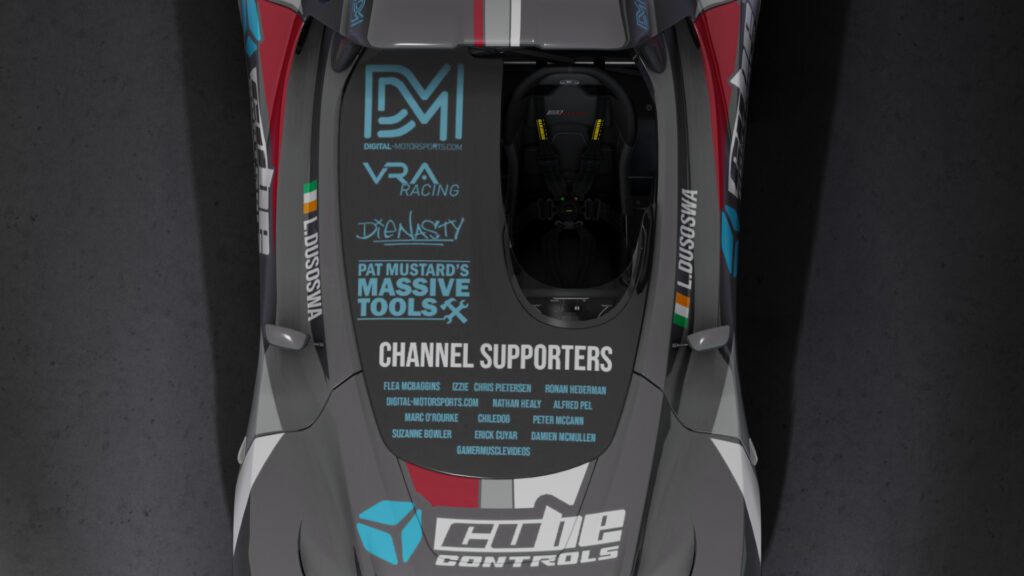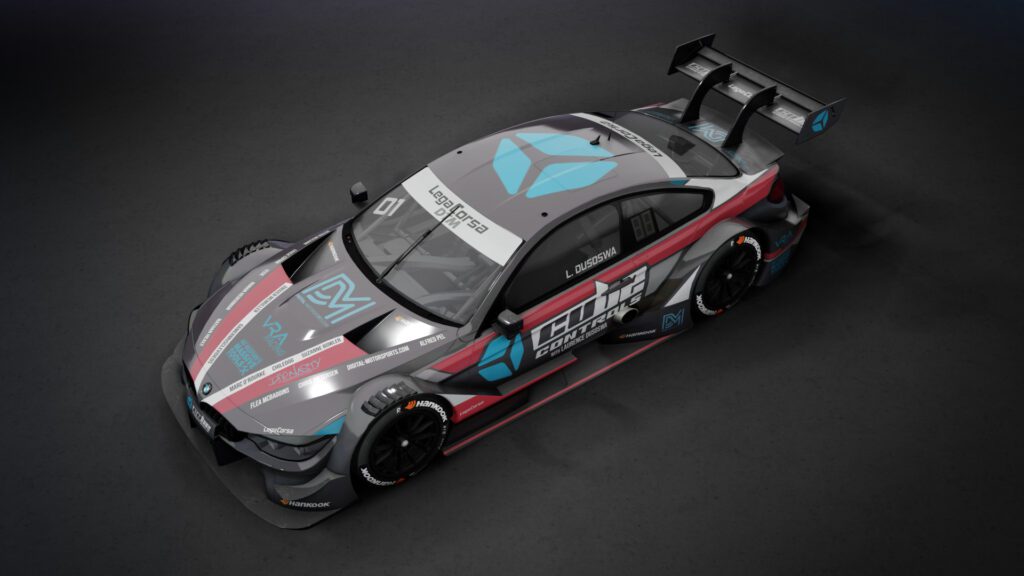

How to attract sponsors | Sim Racing
If attracting sponsors is a goal for your review content creation or sim racing journey, consider the following points. Many create their race teams or content channels in the hope of upgrading their equipment. This is a welcome side effect of a successful channel, but there’s far more to it than meets the eye.
Before we get into the list, some stats which will help you to ‘sell’ your channel include things like your ‘watch minutes’. This number can be relatively impressive. Use any and all of your ‘impressive’ stats where you can. The frequency of your streams/events, your personal sim racing history or real life racing experience will help greatly when approaching a company as it makes you very personable. If a company can relate to you, then they will imagine their customers relating to you also. Never miss an opportunity to monetize your content or your reach. See my ‘How to Support‘ page for examples. Maintaining and updating my support links could be a full time job in its own right.
10 tips for attracting sponsors in Sim Racing


1. The goal for any aspiring sim racing business should not be to ‘get free stuff’. That’s the wrong mindset. Your goal should be to provide entertainment or educational value for the people who watch you. Your goal should be to use any hardware you get sent, or any hardware you get a discount on, to inform (with reviews, guides or product demos, results) or entertain the viewer.
“The main goal of a content creator is to educate or entertain”
Will Ford – Boosted Media
2. Focus HEAVILY on the value you CAN offer a company. Think about why they would want to work with you, and what that would be worth to them. Sell your brand accordingly. Be open and up front with them. Don’t make promises that you cannot keep. Ensure that your expectations come across as ‘a good deal’ for them. If you cannot think of any reason they might want to work with you, then move on to the next point.
3. DO NOT approach any companies until you have at least reviewed some of the hardware that you already own, or gotten exposure to justify your approach towards them. Trying to sell your vision is impossible without proof that you can deliver the goods or if you are not on a clear path. Think of timelines and realistic goals. Don’t commit time that you cannot afford to spare. Companies get approaches from dreamers all the time. Prove that you’re not just another dreamer.
4. If products are your focus, your initial approaches towards companies should focus on receiving products for review with the offer that you will return the product after the review. This will prove to the company that you are looking to use the product to give or gain value or exposure, rather than just looking for a free product. In many cases, from experience, companies will not even follow up on your offer of returning the product as it is not of any use to them once used. But they appreciate the gesture immensely.


5. If financial reward is your focus (race teams or entertainment channels) then allow the risk to be as low as possible for the sponsor. Concentrate on results based rewards rather than up front payment. If you are a product reviewer, be very careful about taking money in exchange for reviews. Similarly, you must see any products that you get as tools for your business which you cannot resell to gain profit. Once you sell a piece of hardware that was given to you by a company, you’re accepting payment for review. If you accept payment for a review, you are not reviewing, you are advertising. It doesn’t matter how positive or negative your review is. You are also likely to be engaging in activity which is contrary to your YouTube or Facebook terms and conditions if you do not fully disclose sponsorships or payments. Reviews need to be independent. If your review ethics are not squeaky clean, your audience will see it and I imagine that it’s difficult to ever recover from that.
6. Chase smaller companies with exciting products, rather than larger ones who already have access to bigger channels. Larger companies may want to work with you but being on a journey with a smaller company is the perfect relationship to establish a niche. Look at Simagic, in my case.
7. The number of views on a product review video matters to sponsors, but not as much as you may think. Companies care more about quality than quantity. The exposure you give them will likely lead to sales. Even if the number of sales is small, each sale or high quality engagement makes their investment in you more worth it. For this reason, don’t be afraid to track your referrals using link shortening services or affiliate programs. Also, encourage your existing viewers to comment on your videos. Most people go straight to the comments when starting a video. The comments will put a message in their heads and make them stick around. If your subscribers are saying “great video” or emphasising a great point you made, companies LOVE that and that’s a great example of high quality engagement, without necessarily being able to track a sale. Showing that intent to track and measure will impress the company that you are approaching. They see it as ambition and confidence, and from my experience, they rarely ask for the resulting data. But do have it, just in case 😉 It is VITAL to remember that you are not trying to help them to sell their product. You are trying to help users to decide whether this product is for them or not.
8. Companies and viewers value your honesty. Don’t be afraid to criticise something you got for free or at a discounted rate. Your concerns or doubts matter. If you thought them, others might too. Thoughts like that influence decisions. Remember, you are not advertising a product, you are informing the company about why you like/dislike the things that they did. You are empowering a potential buyer with information that will influence their spending behaviour in a positive or negative way. Being honest allows them to make the decision that’s best for them.


9. Be mindful of potential conflicts of interest. Is company A going to want to engage with you if company B is closely affiliated with your channel? Don’t spam the same generic elevator pitch to every company you can name. Create meaningful engagements with them. It helps if you are already active on their social media posts in advance of your approach. Usually the people in charge of their social media have close links with the people who choose whether to send review samples to content creators.
10. No matter what you do, always over deliver. As well as delivering the things you promised, deliver things that you never promised. Show that you are going beyond the bare minimum and this will build a lasting partnership with any sponsors.
Have you got any more good advice? Whether you’re a content creator or not, leave a comment and I’ll update this list over time.

